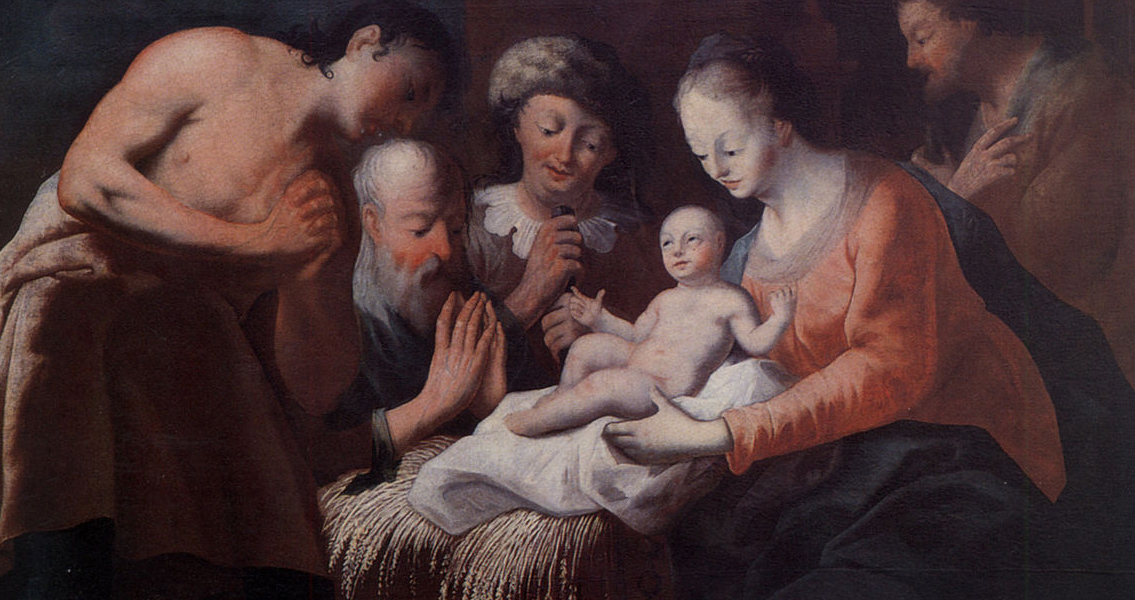<![CDATA[Most Christians celebrate the birth of Jesus Christ on the 25th December. In the modern western world the date has taken on a significance far beyond its Christian origins. It is celebrated by people outside the religion as much as Christians themselves, and, depending on one's outlook, is a time of year associated with the giving of gifts, spending time with loved ones, charity, goodwill, or rampant consumerism. But why is it celebrated on the 25th December, when the date of Jesus' birthday is never mentioned in the Bible? A combination of historical research and study of the Bible has led many historians and theologians to suggest that Jesus was probably born in either the Spring or Autumn. In the nativity story, Mary and Joseph are traveling to Bethlehem for a Roman census. The Jewish festival of Passover takes place in Spring, sometime around March or April. The festival celebrates Moses leading the Jews from Slavery in Egypt. Two millennia ago, thousands of Jews would descend on Jerusalem each year to celebrate the festival. It would have been an ideal time for the Romans to perform a census of the population, and could explain Mary and Joseph journeying to Bethlehem (a short distance from Jerusalem). In the autumn, around September or October, is the Jewish festival of Sukkot. It is a time when Jewish people remember their dependence on God during the forty years in the desert and coincides with the end of the harvest season. Again, the festival involved the Jewish population descending on Jerusalem, making it an ideal time for a Roman census, and explaining there being "no room at the inn" in the nativity story. How the holiday came to be celebrated on the 25th December remains shrouded in mystery. The first two centuries of Christianity made no reference to when Christ was born, or a winter Christian holiday. Most researchers believe that the 25th December was chosen because it was around the time of a host of pagan festivals associated with the Winter Solstice. The Romans paid tribute to the pagan God Saturn (the god of agriculture, among other things) each winter with a festival that started on December 17th and ended around the 25th. It included a celebration of the Solstice, as well as partying and the exchange of gifts among friends and family. Worship of the ancient Persian God of Light (Mithraism) was also popular at this time, especially among Roman soldiers. Like the worship of Saturn, the cult of Mithraism included a host of festivities in late December, around the Winter Solstice. Emperor Constantine's conversion to Christianity in 312 CE and the official sanctioning of the religion signaled the formation of many of the traditions it still holds to this day. One possible explanation for the decision to hold Christmas festivities on the 25th December is that the date was already celebrated by pagans. Selecting this date would have eased the transition from the pagan traditions and calendar to the Christian. There was also some logic for this decision in scripture. Early Christian tradition stated that the Annunciation (when Mary was told she would have a special child) happened on the 25th March. The 25th December is thus nine months after the Annunciation. Christmas was first recorded as being celebrated on the 25th December in 336 CE, and a few years later Pope Julius I declared the date to be the official celebration of Jesus' birth. After its adoption by Roman culture, the celebration of Christmas quickly spread east and west, and started to be observed by other Christian denominations. Over the centuries other traditions have been added - the lighting of the Yule Log comes from pagan Scandinavia, while the story of 'Santa Claus' comes from the popular medieval feast of St. Nicholas Myra, a saint who visited children and left them presents just before Christmas. Christmas, as we celebrate it today, is a mixture of different cultures. For Christians it is the day put aside to acknowledge Christ's birthday, however, it is also a continuation of long held traditions from history, intended to provide light in the darkest part of the year through the exchange of presents and good will. Image courtesy of Wikimedia Commons User: AndreasPraefcke]]>
Why the 25th December?
